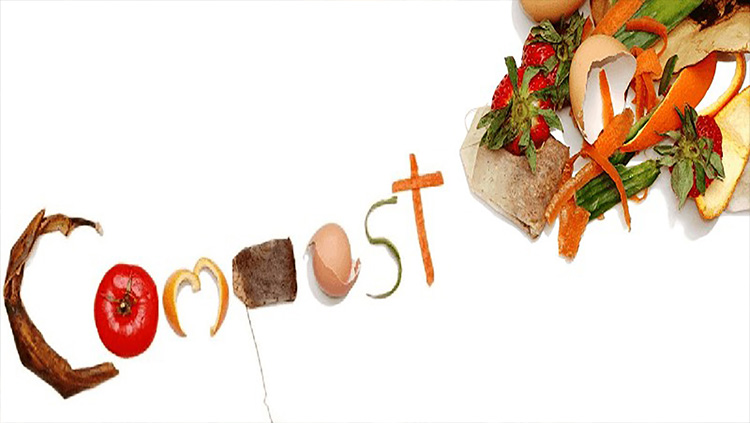A Guide to Compost
By : Upma Gupta

IOur project Garbage to Garden talks about how easily we can use our kitchen waste to make pure organic compost without any pesticide or harmful chemicals. To accomplish this task we have to understand the basics of composting. Let’s take a look at the process, shall we?
What is compost, basically?
It’s just an organic compound that fastens the growth of plantation and secures the health of the crops. In short, compost helps plant grow; it’s like the parents of the plants providing them with basic necessities that can help the growth of the plant. The amount of waste created out of food scraps and leftovers are nearly 20-30 per cent of our wastes and can be easily composted to help recycle it. Otherwise these organic wastes go to the landfills and in time generate harmful and highly inflammable methane, a potent greenhouse gas.
But here is a basic know how of the three basic ingredients of composts:
Browns – Browns are basically the dead leaves, branches and twigs.
Greens— Greens consist of the kitchen leftovers, fruit scraps, coffee grounds, tea leaves and organic waste mixed with grass and other vegetable and plant residues.
Water – Water is essential but in the right amount. If the organic waste already is wet then we don’t need to water it more. The right amount of water mixed with the browns and the greens creates the perfect compost.
Ratio:
The ratio in which you mixed all the compounds to create the compost is most important and really essential to remember. Like the ratio of the browns and greens should be 1:1. Unless we have the equal amount of brown to greens the compound wouldn’t work perfectly to generate the compost. The mixture should be made in a certain way so that the ratio is equally spread. We should also layer our compost pile with alternate layers of different sized particles of organic materials. Brown materials are there to suffice the need of carbon in your compost while the greens are there to provide nitrogen, the essence of organic life. And the water is there to moisturise the mixture to help break down the organic matter.
This is pretty much the basics, and if you follow the procedure you are going to get fresh organic composts to grow your kitchen garden or use it in your community for farming. Go ahead. Try it.
#Composting #Basic #HowToCompost #Compost #Green #Organic #Homegrown #FreshVeggies #Healthy #DoItYourself #TryItAtHome #GreenVeggies #TryComposting #FutureFarming #Farming #Plants #Eco-Friendly #Environment #Garbage #Garden #GarbageToGarden
Posted on June 30, 2017